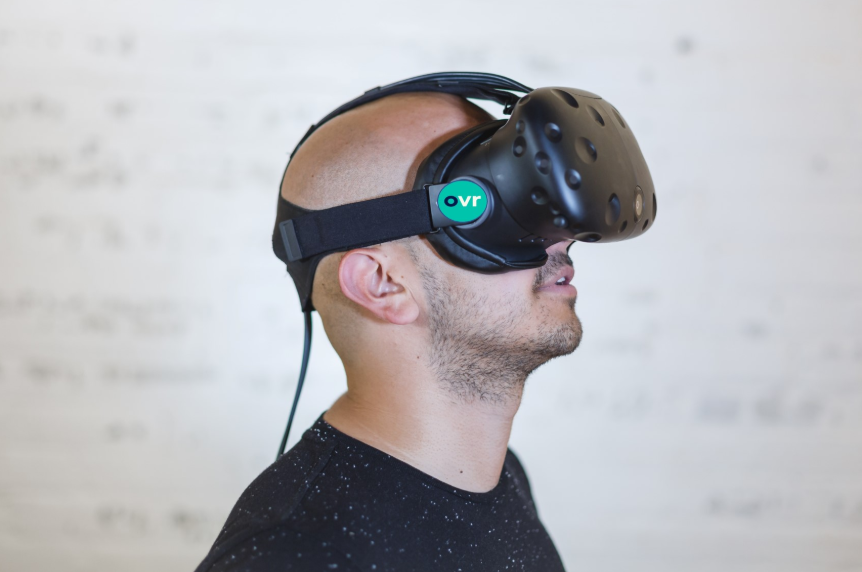VR Therapy Pioneer Oxford VR Secures $12.5 Million in Series A Funding
VR pioneer Oxford VR announced that it has secured $12.5 million in a Series A funding round. This landmark investment represents the largest for virtual reality therapy in Europe (including UK).

The funding round was led by Optum Ventures. It was supported by Luminous Ventures. The new infusion of capital will fund the next-level growth for the startup and help it pioneer immersive VR therapy for various conditions including anxiety, depression and other mental health disorders.
Oxford VR is a spin-off from the Oxford University Psychiatric Clinic. One of the co-founders is professor Daniel Freeman who has been carrying out research on VR therapies for the past 20 years.
Prof. Freeman began looking at the therapeutic potential of virtual reality long before the VR wave became even a thing. His research was focused on exploring the potential for Virtual Reality to create automated and powerful psychological treatments which can radically transform how we experience therapy.
The Oxford VR platform builds on this research.
The Oxford VR platform provides a VR-based behavioral therapy where patients wearing virtual reality headsets can expose themselves to virtual situations that pose them challenges in real life.
Its first clinical trial was based on the fear of heights and was published in The Lancet Psychiatry. It demonstrated how automated Virtual Reality therapy can help produce huge clinical benefits.
The results obtained from that clinical trial had been significantly better than had been initially anticipated. The trial also showed the capacity for automated VR therapy to change mental healthcare by assisting overloaded providers in expanding access and standardizing clinical excellence while following the correct treatment protocols.
Virtual Reality therapy entails individuals wearing a headset and immersing themselves into VR simulations of the situations or environments that normally trigger certain symptoms in real life. It is like confronting some of your worst fears but within a safe virtual environment.
The treatment process involves individuals being requested to complete various tasks. The patients perform tasks with an increasing level of difficulty and also get helpful feedback on how they can master the difficult situations. The simulated virtual environments give the person the assurance that they can safely confront their fears and are not in any real danger like they imagine.
With Virtual Reality, the behavioral changes that occur in the virtual environment are translated into the real world. The positive changes that the patient has experienced in Virtual Reality such as the confidence that they can master difficult situations are transferred into the real life.
Virtual Reality therapy is also automated. This allows patients to handle a large case load than would have been possible with face-to-face physical therapy. The therapist can connect one patient to VR therapy as they redeploy to more urgent cases or aspects of care.
VR therapy is designed to supplement, not replace, professional help.
It is estimated that mental disorders will cost the global economy a whopping $16 trillion by 2030. WHO reports that one in four people across the globe will be grappling with mental or neurological disorders at some juncture in their lives. Currently, an estimated 450 million are suffering from such conditions.
The state of mental health care is still dire. The cost of care is high, there are low patient engagement rates as well as the shortage of qualified clinicians. This has resulted in a huge backlog of unmet needs when it comes to mental healthcare. It is estimated that 75% of people suffering from mental health issues currently go without treatment.
Given this state of affairs, Virtual Reality therapy may therefore be a huge boon for mental health. The huge investment in Oxford VR shows the confidence that some investors are already showing in the potential for immersive technologies to help address some of the gaps in mental health care.
The additional capital will go into expanding new Virtual Reality therapies for anxiety orders, depression as well as PTSD. It will also fund the startup’s expansion into the US market.
Source: PR Newswire
https://virtualrealitytimes.com/2020/02/13/vr-therapy-pioneer-oxford-vr-secures-12-5-million-in-series-a-funding/https://virtualrealitytimes.com/wp-content/uploads/2020/02/Oxford-VR-600x398.pnghttps://virtualrealitytimes.com/wp-content/uploads/2020/02/Oxford-VR-150x90.pngBusinessStartupsVR pioneer Oxford VR announced that it has secured $12.5 million in a Series A funding round. This landmark investment represents the largest for virtual reality therapy in Europe (including UK). The funding round was led by Optum Ventures. It was supported by Luminous Ventures. The new infusion of capital...Sam OchanjiSam Ochanji[email protected]EditorVirtual Reality Times - Metaverse & VR
